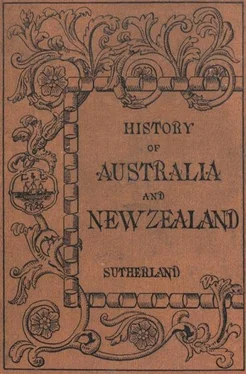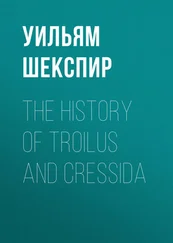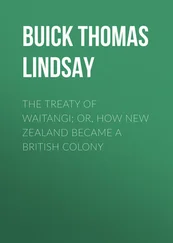7. Earl Grey.—For a year or two the English Government forgot all about the separation question; and, in 1848, the wearied colonists at Port Phillip determined to call attention to their discontent. Accordingly, when the elections for that year approached, they determined not to elect any member, so that the English Government might see of how little use to them their supposed privilege really was. It was agreed that no one should come forward for election, and it seemed likely that there would be no election whatever, when a gentleman named Foster offered himself as a candidate. This placed the non-election party in a dilemma; for if they declined to vote at all, and if Mr. Foster could persuade only two or three of his friends to vote for him, then, since there was no other candidate, he would be legally elected.
Now, at this time, Earl Grey was Secretary of State for the Colonies; and when some one proposed to nominate him for election, in opposition to Mr. Foster, the idea was hailed as a happy one. The non-election party could then vote for Earl Grey, and he would be returned by a large majority. But Earl Grey, being an English nobleman and a member of the British Government, would certainly never go to Sydney to attend a small Colonial Council; so that there would be, in reality, no member elected. But the attention of the Secretary of State would be drawn to the desires of the district. Earl Grey was triumphantly elected, and when the news went home it caused some merriment. He was jokingly asked in the House of Lords when he would sail for Sydney. And for several weeks he underwent so much banter on the subject that his attention was fully aroused to the long-neglected question. He weighed the matter carefully, and, resolving to do the people of Port Phillip full justice, sent out word that he would at once prepare a Bill for the Imperial Parliament, in order to obtain the necessary powers. At the same time he intimated that Queen Victoria would be pleased if the new colony should adopt her name. Nothing could give the colonists more satisfaction, and they waited with patience until affairs should be properly arranged in England.
8. Sir Charles Fitzroy.—All this agitation, however, had not taken place without much irritation and contention between the people at Port Phillip and their Governor at Sydney, from whose authority they wished to free themselves. Sir George Gipps had much to harass him, and in 1846 he was glad to retire from his troublesome position. He was succeeded by Sir Charles Fitzroy, a gentleman in every respect his opposite. By no means clever, yet good-tempered and amiable, he troubled himself very little with the affairs of the colony. The Sydney Council managed everything just as it pleased; Sir Charles was glad to be rid of the trouble, and the colonists were delighted to have their own way. As for the separation question, he cared very little whether Port Phillip was erected into a colony or not.
In 1850 the news arrived that Port Phillip was to be separated from New South Wales, and in the middle of the next year its independence was declared. Its Superintendent, Latrobe, was raised to the dignity of Governor, and the new colony received its Constitution, conferring on it all the legislative and other powers which had previously been possessed only by New South Wales.
9. Abolition of Transportation.—It was during this period that the English Government resolved on sending no more convicts to Australia. A committee of the Imperial Parliament held an inquiry into the effects of transportation, and reported that it would be unwise to continue the system. From 1842, therefore, there was practically a cessation of transportation, although the majority of the squatters were averse to the change. They found that the convicts, when assigned to them, made good shepherds and stockmen, and that at cheap rates. They subsequently petitioned for a revival of transportation; but, after some hesitation, the British Government resolved to adhere to their resolution to send no more convicts to Sydney. Van Diemen’s Land was still unfortunate; it was to receive, indeed, the full stream of convicts, but from 1842 Australia itself ceased to be the receptacle for the criminals of Great Britain.
CHAPTER XI.
SOUTH AUSTRALIA, 1841-1850.
1. Governor Grey.—The colonists of South Australia had, in 1841, received a sharp but salutary lesson, and we have seen that they profited by it. They had discovered that the land was their only source of wealth, and many, who had sufficient means to purchase farms or stations, went out into the country, determined to endure a year or two of hardship in hopes of prosperity to come. Nor had they very long to wait; in 1844 they were able to export corn to the extent of £40,000, and in that year the colony possessed 355,000 sheep and 22,000 cattle.
The new Governor, Captain George Grey, took every care to assist the colonists in returning to more prudent courses. Many changes were needed; for in 1840, while the colony had a revenue of only £30,000, it had spent at the rate of £171,000 per annum. Such imprudence could lead to nothing but ruin, and the first task of the Governor was to reduce all expenses as far as possible. In the first year the expenditure was cut down to £90,000; in the next, to £68,000; and in 1843, to £34,000.
Instead of employing the poorer labourers on costly and unnecessary public works, he persuaded them to take employment in the country with the farmers and squatters, who were rapidly opening up the interior parts of the colony. He settled many on small farms or stations of their own, but in this he was greatly impeded by the high price of land; for Wakefield’s friends in England were not yet convinced that their favourite scheme was defective—they attributed every mishap to the incompetence of Governors Hindmarsh and Gawler. “To lower the price,” said they, “will be to ruin the colony;” and lest such a thing should happen, they raised the price of all lands, whether good or bad, to one pound per acre. But many of those who had bought land in the first days of the settlement had been so anxious to part with it during the crisis that they had sold it for much less than it cost them; and thus a great number of the poorer people became possessed of land at very moderate prices. In 1839 there were but 440 acres under cultivation; three years afterwards there were 23,000 acres bearing wheat, and 5,000 acres of other crops. So rich and fertile was the soil that, in 1845, the colonists not only raised enough of corn to supply their own wants, but were able to export about 200,000 bushels at cheap rates to the neighbouring colonies, and even then were left with 150,000 bushels, which they could neither sell nor use. So rapid a development of resources and so sudden an accession of prosperity have probably never occurred in the history of any other country.
2. Mineral Wealth.—Such was the success attendant upon careful industry, exercised with prudence, and under favourable circumstances; but the colony was to owe yet more to accidental good fortune. During the year 1841, a carrier, while driving his team of bullocks over the Mount Lofty Range, had been obliged, by the steepness of the road, to fasten a log to the back of his waggon in order to steady the load and prevent its descending too quickly. As the log dragged roughly behind on the road, it tore great furrows in the soil, and in one of these the carrier noticed a stone which glanced and glittered like a metal. On looking more closely, he saw that there were large quantities of the same substance lying near the surface of the earth in all directions. Having taken some specimens with him, he made inquiries in Adelaide, and learned that the substance he had discovered was galena, a mineral in which sulphur is combined with lead and small quantities of silver. The land on which this valuable ore had been found was soon purchased, and mines opened upon it. At first there was a large profit obtained from the enterprise; and though, in after years, the mines became exhausted, yet they served to call the attention of the colonists to the possibility of discovering more permanent and lucrative sources of mineral wealth.
Читать дальше












